REO Speedwagon – ‘The Early Years 1971-1977’ (2018)
In 1966 University of Illinois students Neal Doughty and Alan Gratzer, who lived in the same dormitory, met and became friends. Gratzer was the drummer in a couple of local bands and Doughty, a keyboard player, began following one of them, sitting in occasionally. The two wanted to play music different from the typical fraternity drinking songs that other bands were playing, preferring to include songs from Hendrix, The Kinks, The Beatles and The Doors, so they decided to form a band.
Most midwestners were not used to these tunes, so when they heard the band playing “Light My Fire” they assumed it was an original and the band developed a following based on their live set. At first their band didn’t have a name but they wanted one to advertise for gigs. Doughty was studying engineering and walked into a classroom one day and saw the name “R.E.O. Speed Wagon” written on the board. The name referred to a truck from the early 20th century and represented being heavy duty and high speed, which he felt would be perfect for a rock and roll band’s name, so he suggested it and the rest of the group liked what it stood for, so from 1967 on their group adopted the name R.E.O. Speedwagon. Doughty and Gratzer went through ten permutations before finding the right combination of musicians. In the end, Doughty and Gratzer were joined by guitarist Gary Richrath, bass player Gregg Philbin and vocalist Terry Lutttrell and the band was signed by Epic Records.
The band’s debut LP, “R.E.O. Speedwagon” was released in 1971 produced by Paul Leka and Billy Rose II. The album comprised of eight band originals, all credited to the band as a whole, with the song “Sophisticated Lady,” a Little Richard influenced tune, released as a single, but it did not sell in large numbers. The LP contained tunes like “157 Riverside Avenue” which showed the group could certainly rock and held great potential. It became one of Speedwagon’s signature songs, with Doughty’s piano intro bringing to mind such contemporary tunes as “Locomotive Breath” by Jethro Tull, and Richrath’s guitar soaring over the top of the band, with his solo setting the tone for things to come from the band. The album closed with the ten minute tour de force “Dead At Last.” Again, the song’s sound centers around Doughty and Richrath, with the former contributing an organ solo which gives way to a fiery guitar solo by Richrath. Gratzer also contributes a tasty drum solo, but it is Richrath’s incendiary guitar that defines the song and makes it a classic that sadly did not attract much attention to the band. The album’s eight tracks are joined by the mono single edit of “Sophisticated Lady” as a bonus track on this set. The album’s sales were not impressive but were strong enough to ensure a follow up. Unfortunately, all was not well in the band’s camp, and vocalist Terry Luttrell became unhappy, unable to get along with the other members, especially Gary Richrath, as Luttrell hoped to take the band in a more blues oriented direction. The situation came to a head at a gig where the group had to cancel the second set as Luttrell simply disappeared, with no one from the band able to locate him. His replacement would come in the form of Kevin Cronin. Gary Richrath saw an advertisement in a Chicago newspaper for a musicians referral agency, called the number and was told by the person who answered the call that they had the perfect vocalist for them. The person who answered the call was Cronin himself, who happened to be the only client he had in his agency. After a quick tryout Cronin joined the band as lead vocalist and rhythm guitarist.
Cronin brought several songs with him, some included on the band’s second album, fittingly titled “R.E.O./T.W.O.” released in 1972. The LP opens with a Cronin song “Let Me Ride” a six minute hard driving rocker featuring hot guitar work by Richrath. “T.W.O.” consists of seven band originals, four by Richrath and three by Cronin as well as an inspired cover of Chuck Berry’s classic “Little Queenie.” While the album did not light the music industry on fire with sales it did include two Richrath compositions which defined the band’s sound and became essential elements of their live set, “Like You Do” and “Golden Country.” In contrast to the debut album on which writing credits were given to all the band members on every tune, it is apparent on their follow up that there were two distinct major songwriters, Cronin and Richrath. Kevin Cronin’s tunes like “Being Kind (Can Hurt Someone Sometimes)” give a hint of the more ballad oriented tunes which sold millions for R.E.O. in their heyday, as does his relatively mellow “Music Man” although the track does include some hot guitar from Richrath. The Richrath originals, on the other hand, are flat out, pedal to the metal rockers, beginning with the LP’s second track “How The Story Goes” although it is the album’s final three tracks that are the standouts to my ears. The previously mentioned “Like You do” is a six minute heavy rocker, with Richrath’s guitar to the fore from the outset. Featuring R.E.O. at the heaviest, the tune immediately became a live staple, and in fact was the opening number on the set list of the tour recorded and released as the double LP collection that comprises the final two discs of “The Early Years 1971-1977.” “Flash Tan Queen” is a shorter, four minute, number featuring Speedwagon’s signature sound of Richrath’s guitar and Doughty’s organ. The album closer is the six and a half minute “Golden Country” which also became a staple of the band’s live set and was used as an encore live. The song itself is a heavy rocker which stands apart from the vast majority of the R.E.O. catalog with its social commentary, Richrath discussing the fate of society’s less fortunate, in the form of junkies, prostitutes and the less privileged, serving if you will as a call to unity. The song serves as an incredible closer for a consistently heavy rocking album which many still consider R.E.O.’s best of all time, and is unquestionably recognized as the standout among the group’s early albums.
Once again however, all was not well in the R.E.O. camp. Despite the recognition of “T.W.O.” as a great document of a band finding itself and defining its sound, trouble was in the air. Personality issues arose between Kevin Cronin and the other members of the band which came to a head just as the band was finishing recording its third albums, 1973’s “Ridin’ The Storm Out,” another highly regarded release, especially the Richrath penned title track with its unforgettable intro and outro featuring Doought’s keyboards, and Richrath’s guitar standing out in between. Cronin says that he had been misdiagnosed with vocal cord problems, his doctor telling him that if he did not limit his vocal efforts the malady would require surgery. For whatever reason Cronin did not discuss this with the other members of the band, and instead did not sing at rehearsals, saving his voice for the studio and live performances. The result was a falling out and the replacement of Cronin on vocals by another Champaign musician the members of the band knew well. Mike Murphy was a soul, R&B sort of singer, so his selection sent the band into a different direction once again, as had been the case when Cronin replaced Terry Luttrell following the band’s debut album. The immediate problem, however, was that “Ridin’ The Storm Out” was done and Croni’s departure forced the band to replace his vocals with those of Murphy. Additionally, the album cover photo had already been taken and Epic was forced to take a photo of Murphy and carefully replace that of Cronin,. The finished product consisted of six Richrath tunes, highlighted by the title track, two Cronin songs, and with the band short on originals the LP was completed with covers of Stephen Stills’ “Open Up” and Terry Reid’s “Without Expression (Don’t Be The Man).” “Ridin’ The Storm Out’ is memorable for including slide guitar work by Joe Walsh on three tunes, the band having become close to Walsh serving as the opening act at many gigs at the time for Walsh and his band Barnstorm. Especially noteworthy are Richrath’s “Son Of A Poor Man” which found release as a single and became an integral part of R.E.O. live performances. Also of note is the fact that the album was the group’s first to make the Billboard Hot 200 album charts, topping out at #171. The band’s sound took a rather dramatic change in direction with Murphy at the helm rather than Cronin. “The Early Years” adds four bonus tracks to the album, the mono single edits of the title track and their cover of Stills’ “Open Up” as well as the original recordings of the title track and “Son Of A Poor Boy” with vocals by Kevin Cronin, affording the listener a chance to hear the songs as they were originally recorded for the first time, a wonderful touch indeed.
The next two albums are outliers in the R.E.O. catalog, beginning with 1974’s “Lost In A Dream” the first to include Murphy’s input from the outset. The LP, with five tracks written or co-written by vocalist Murphy, a fine effort in itself, is mellower than the previous three. From the album opener “Give Me A Ride” penned by Murphy, it is apparent that the band’s sound was more restrained than their earlier efforts. While there are still hot rockers, like Richrath’s “”Throw The Chains Away” and “Down By The Dam” both featuring Richrath at his rocking best, mixed with the ever present keyboard contributions of Doughty which have been an essential element of the band’s sound from day one. The album’s title track was co-written by Murphy and Bruce Hall, another Champaign, IL musician, who would replace Gregg Philbin as bass guitarist following the release of “Live: You Get What You Play For” in 1977, with Philbin playing on the album but Hall touring the album after its release. Hall has been a member of the band for more than 40 years now, as REO has remained true to its central Illinois and University of Illinois roots. “Lost In A Dream” is also noteworthy for its inclusion of two tracks written or co-written by keyboard player Neal Doughty, “Sky Blues” a subdued, bluesy number featuring a restrained solo by Richrath and “I’m Feeling Good” .a mid-tempo rocker with Doughty’s organ leading the way until the familiar mix of Richrath’s guitar and Doughty’s keyboards drive the song home. Unlike its predecessor, Murphy is credited on organ and guitar in addition to lead vocals, which helps account for the noticeable change in the group’s sound. The highlight of the album is its six and a half minute title track, a hot rocker with Richrath’s fiery lead guitar and solo joined by Philbin’s John Entwistle influenced bass, which for all intents and purposes becomes another lead instrument. The song retains a gorgeous melody despite its heaviness. Another standout track is Murphy’s “You Can Fly” with Richrath’s wah wah giving the song a rather funky feel. “Lost In A Dream” was the first R.E.O. album to crack the Hot 100, topping out at #98 despite its departure from their earlier sound, and setting the stage for the band’s third and final album with Murphy on lead vocals. The album is supplemented here by the mono single mix of “Throw Away The Chain.”
The band’s momentum continued with 1975’s “This Time We Mean It” which was their highest charting to date, achieving #74 on the Billboard Album charts. Among the album’s ten tracks are five written by guitarist Richrath, four credited to vocalist Murphy and a song written by Glenn Frey and Don Henley of The Eagles, “Out Of Control,” a horn filled tune, a real departure for the band, given to them by Frey and Henley who had become friends due to R.E.O. opening numerous gigs for The Eagles as well as Joe Walsh among others, and sharing management with Irving Azoff. “This Time We Mean It” continued the groups’ move away from hard rock to a more gentle sound, apparent from the opening tune, Murphy’s “Reelin’” another funky rocker. On this album Murphy was credited as lead guitarist and organist in addition to lead vocalist. “River Of Life” another Murphy composition, is a melodic mid-tempo number featuring wah wah from Richrath with Doughty’s piano adding texture. Even the Richrath songs “Gambler” and “Headed For A Fall” are more restrained, despite including waves of guitar from Richrath and Murphy. “Candalera” with Richrath’s wah wah leading the way is perhaps the heaviest tune on the album, with lead line and solo reminiscent of the band’s earlier albums, but it is offset by Murphy tracks like “Lies” with its gorgeous melody and restrained work by Richrath. Following the release of “This Time We Mean It” the group huddled, Richrath expressing frustration with the band’s musical direction, and in an amicable separation, Murphy left the band, in order for them to explore the heavier sound preferred by the other members, especially Richrath and Doughty, the latter who had been opposed to the replacing of Cronin in the first place, forcing the band to once again seek a new lead vocalist. Murphy’s replacement turned out to be a familiar face, as Doughty called Cronin, inviting him to rejoin the band. In the interim Cronin’s manager had submitted demos to the band for inclusion on their albums with Murphy at the helm. The end result was Cronin responding to Doughty’s invitation with “what took you so long?” Thus, the lineup from R.E.O.’s most critically acclaimed album, “T.W.O.” was reunited and the band began its return to its earlier guitar driven, hard rock leanings.
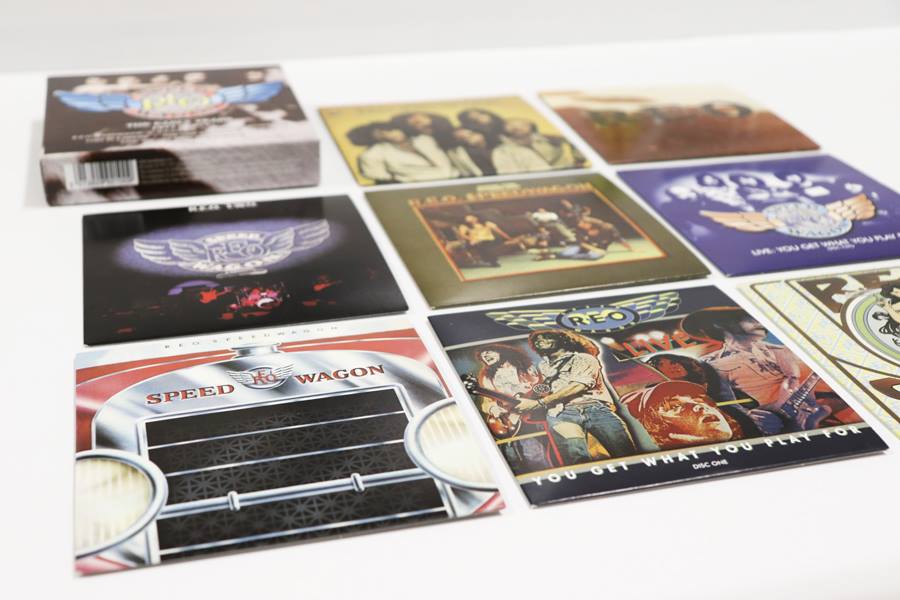
With Kevin Cronin back in the fold on lead vocals and rhythm guitar the groups recorded their 1976 LP titled simply “R.E.O.” an eight tune album, consisting of four tracks credited to Richrath, two to Cronin, and, in a first, two credited to Cronin and Richrath as a duo. While not as successful as its predecessors, attaining only #159 on the Billboard charts, the album is certainly a harbinger of things to come, containing heavier rock tunes filled with commercial hooks thanks to Cronin, and marking the evolution of the band’s sound to that of its most popular period, which followed soon. The LP’s opening track “Keep Pushin” although not successful as a single when released as such, along with Croni’s “”(I Believe) Our Time Is Gonna Come” contained the essence of the ballad influenced hard rock tunes that would make R.E.O. Speedwagon a best selling band, and a household name. “Breakaway” and “Lightning” co-credited to Cronin and Richrath showed that the two had overcome their musical differences and found a middle ground that would allow Richrath to display his guitar prowess while allowing Cronin to give the band a more commercially accessible sound. The album finds the band in better spirits than ever, and having found the musical middle ground that had previously escaped them. Richrath was given the freedom to express his unique talent on tunes such as “Flying Turkey Trot” while his flexibility is on display on “Any Kind Of Love” where he combines his electrifying guitar with the melodic influence of Kevin Cronin. “R.E.O.” is fleshed out by mono single and live takes of “Keep Pushin’.” The fruits of combining the rock ambitions of Richrath and the commercial influence of Cronin were put display on the band’s next release, 1977’s double live set “Live: You Get What You Play For” which not only proved their highest charting to date, topping at #72, but was on the charts for an extended period and set the stage for R.E.O. to find fame and fortune.
With the lineup of Cronin, Richrath, Doughty, Philbin and Gratzer back in place, R.E.O. returned to the road, the place they had always shown brightest and had become perhaps the best known opening act in America. The set’s opening tune, Richrath’s “Like You Do” a constant in their live shows since 1972 set the pace for eighty minutes of commercially accessible guitar rock and began one of the most highly respected of the live double LP phenomenon of the mid to late 1970’s. The set contained incredible run throughs of tunes from their 1971 debut in “Lay Me Down” and “157 Riverside Avenue” given new life with Cronin’s vocals and Richrath’s guitar work. “T.W.O.” fittingly provided the bulk of the material, from set opener Like You Do” to its closer “Golden Country” two Richrath compositions, as well as Cronin’s accessible and melodic “Being Kind (Can Hurt Someone Sometimes)” and “Music Man” and an inspired cover of Chuck Berry’s “Little Queenie.” A highlight of the set was their performance of the title track to their third album “Ridin’ The Storm Out” which is also represented by an extended take on “Son Of A Poor Man.” The then new, “R.E.O.” album is well represented by Cronin’s commercially appealing “Keep Pushin”” and “(I Believe) Our Time Is Gonna Come” as well as Richrath’s “Any Kind Of Love” and “Flying Turkey Trot.” A live track, never recorded in the studio, is “Gary’s Guitar Solo” whose title is rather self explanatory as guitarist Gary Richrath cuts loose on guitar in a nod to a similar tune performed by Leslie West during Mountain concerts of the day. The double album is an incredibly accurate documentation of a finely tuned rock band ready to make their move from “America’s best opening act” to the headlining hit makers that were to soon become. “Live: You Get What You Play For” marks the perfect ending for “The Early Years” of R.E.O. Speedwagon. One would be hard pressed to find a better live set from 1977 and certainly ends this comprehensive eight disc box set on a near perfect note.
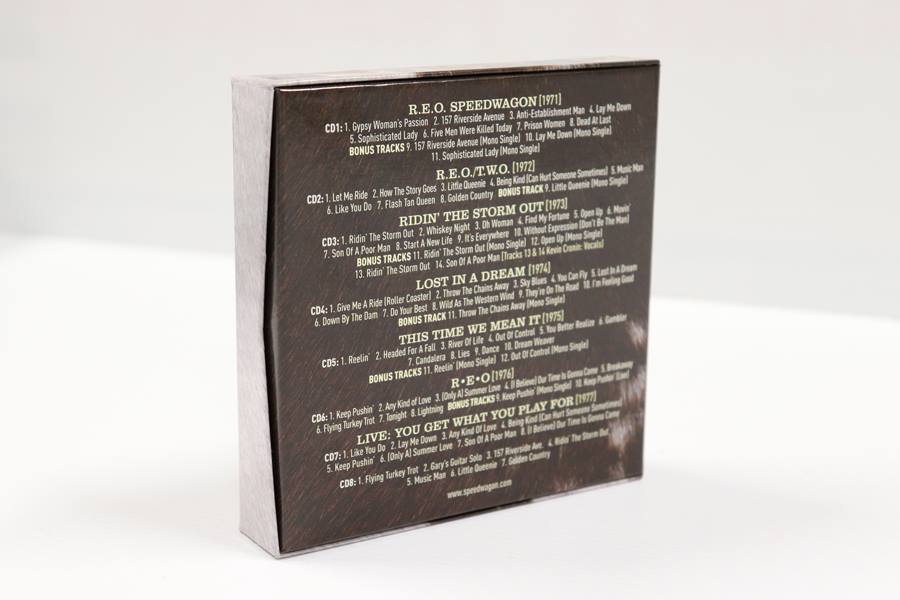
“The Early Years 1971-1977” comes in a clamshell box, complete with a full color forty page booklet containing an informative essay by Malcolm Dome, complete track listings and album credits as well as many photos of the band and album artwork. The music has never sounded better thanks to the mastering job of Tony Dixon at Masterpiece in London. The box set’s eighty two tracks include thirteen bonus tracks, ten mono single mixes, two tracks from “Ridin’ The Storm Out” with the original vocals by Kevin Cronin and a live take of “Keep Pushin”” making this indeed the definitive collection of R.E.O. Speedwagon’s early years. Many thanks to all at Cherry Red Records, UK for this wonderful collection. Fans of 1970’s rock and guitar driven rock in general will definitely want to add this box set to their collection.
Kevin Rathert
REO Speedwagon – ‘The Early Years 1971-1977’ (HNE Recordings, 2018)

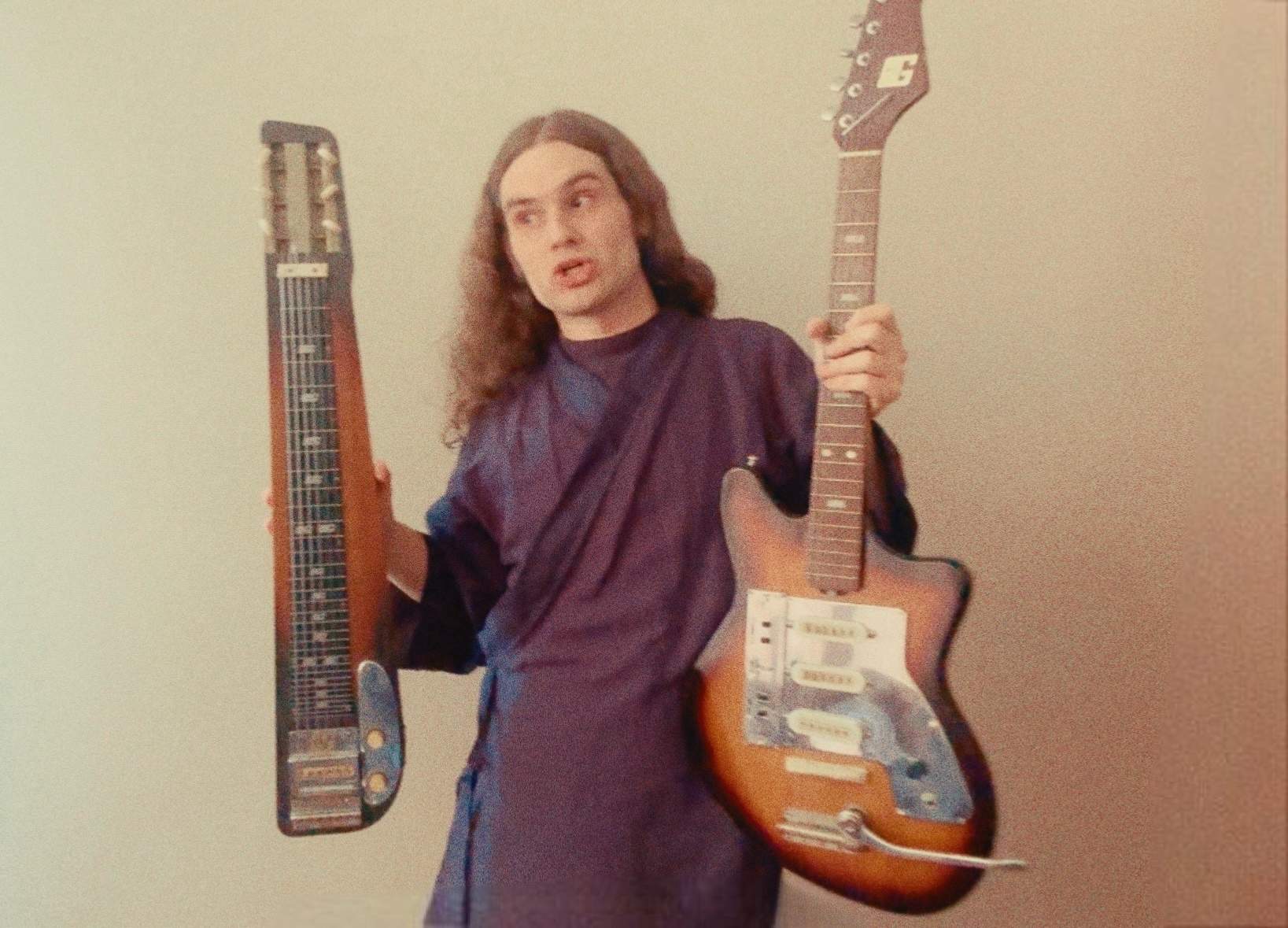
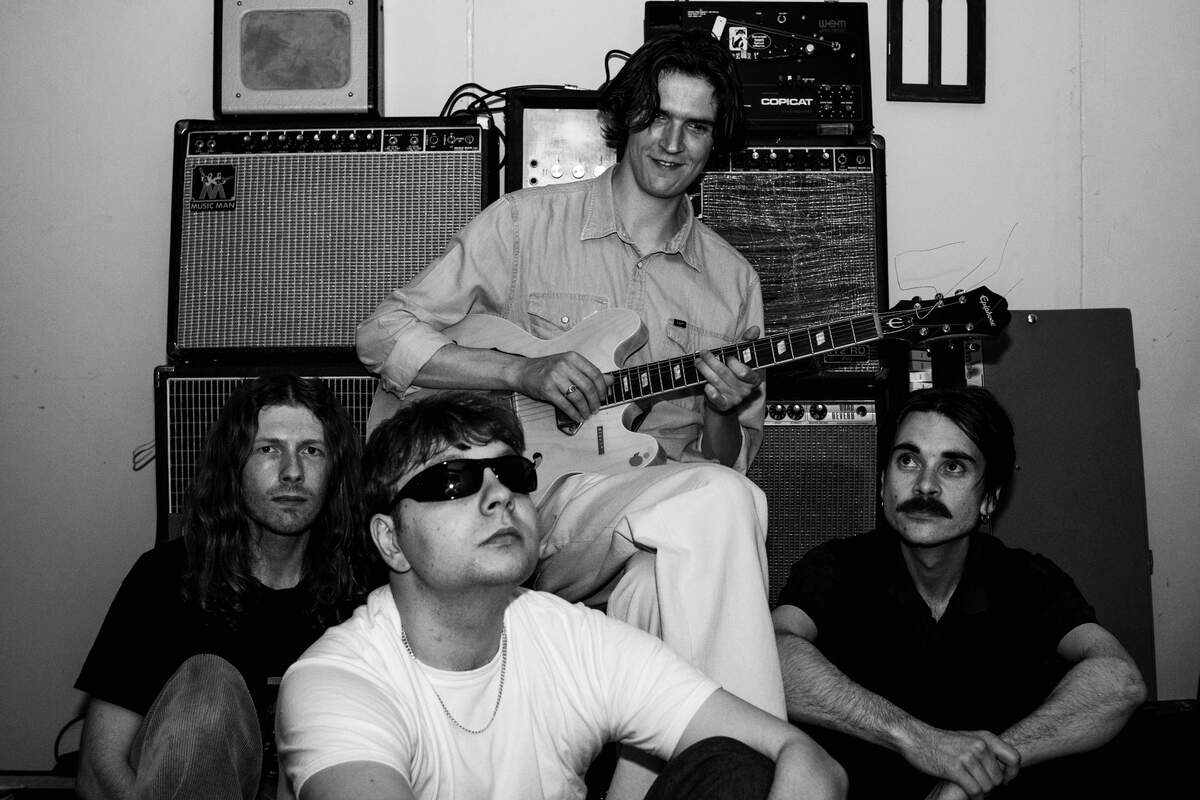
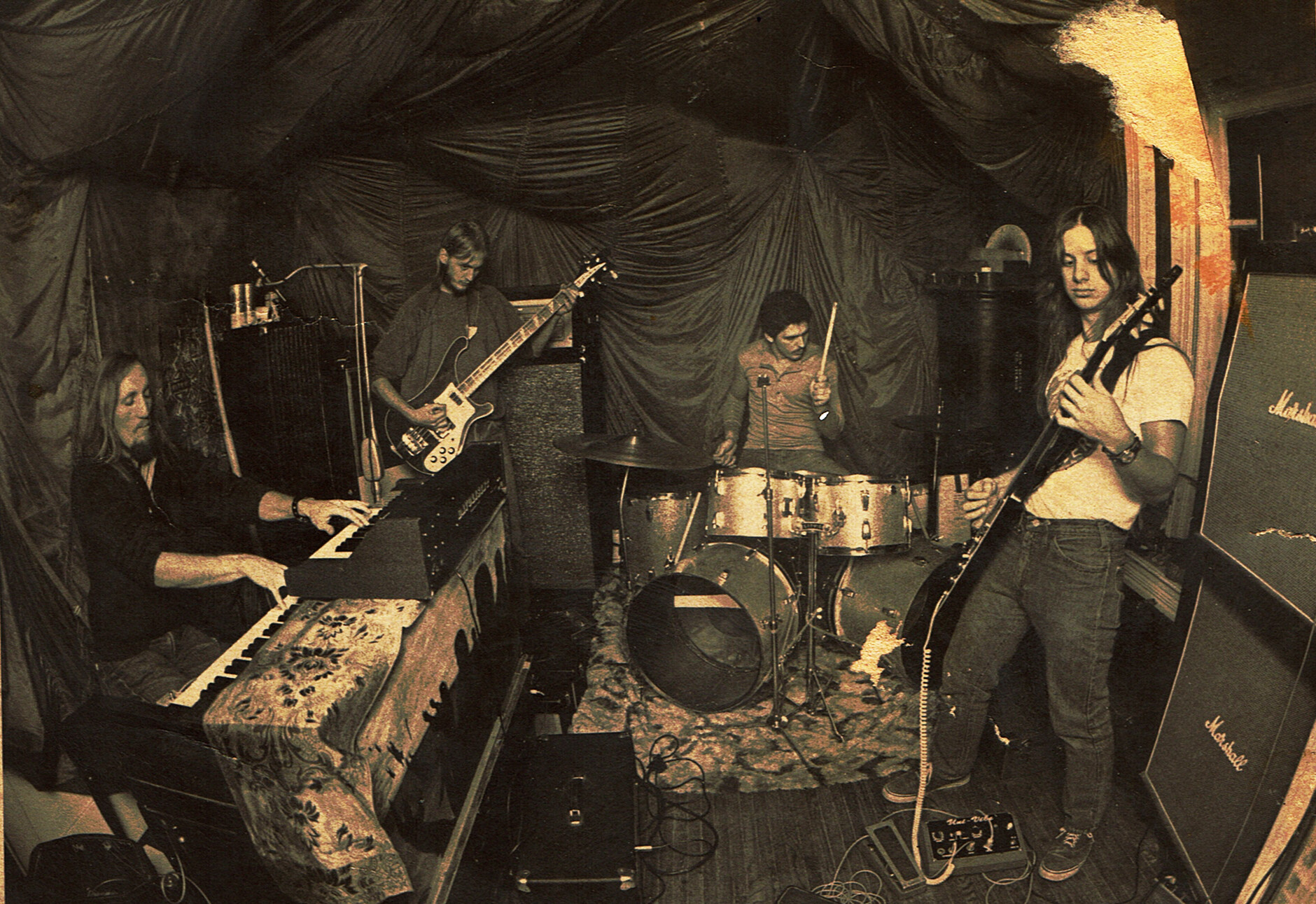
One thing this is missing is the single edit of Lost in a Dream.